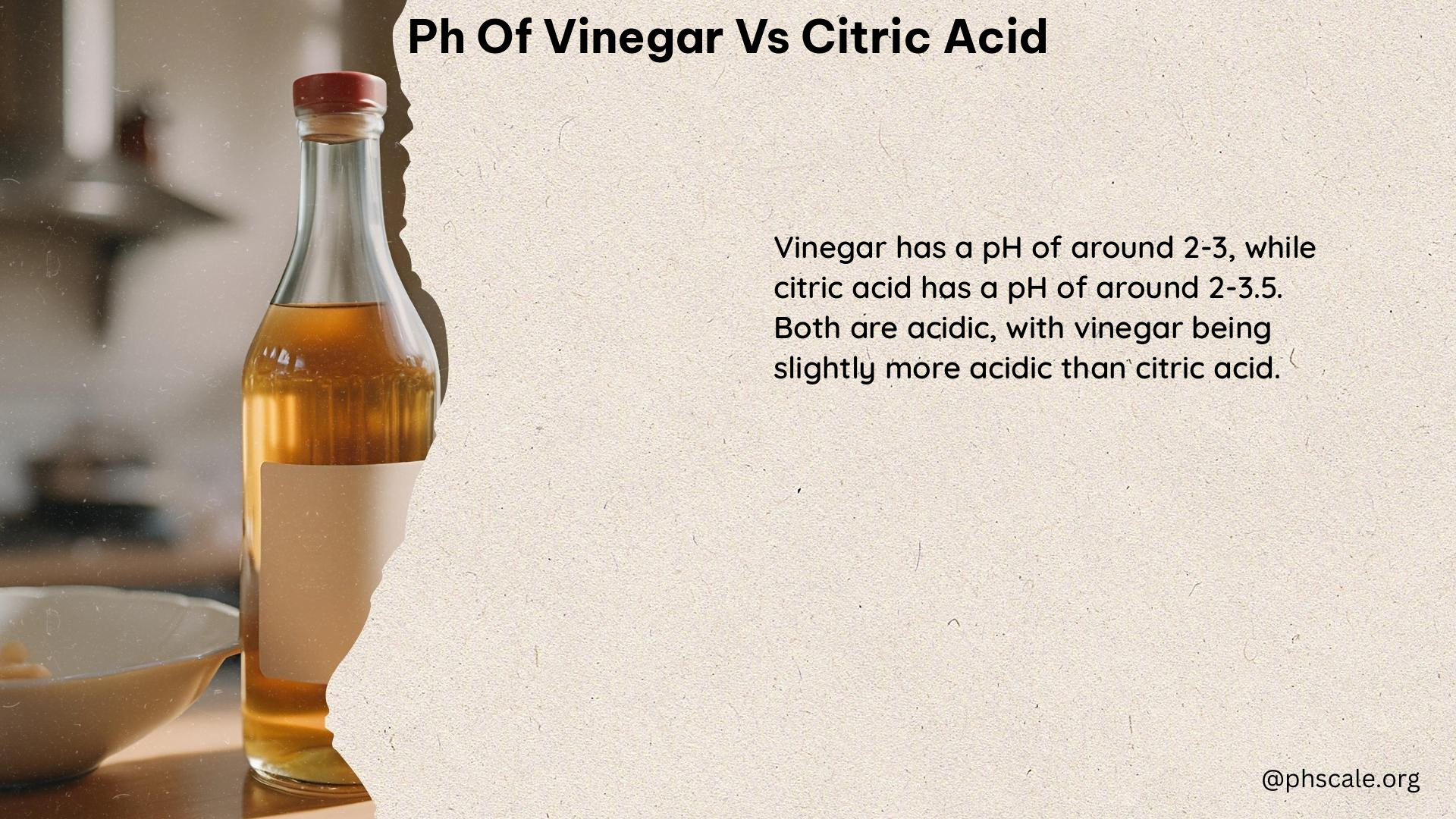Vinegar and citric acid are both commonly used cleaning agents, but they differ in their pH levels and chemical properties. Understanding the pH of vinegar versus citric acid can help you choose the right cleaning solution for your needs.
What is pH?
pH, or potential of hydrogen, is a measure of the acidity or basicity of a solution. The pH scale ranges from 0 to 14, with 7 being neutral. Solutions with a pH less than 7 are considered acidic, while solutions with a pH greater than 7 are considered basic or alkaline.
The pH of Vinegar

Vinegar is a solution of acetic acid in water, typically with a pH ranging from 2.4 to 3.4. This means that vinegar is a relatively strong acid, with a pH that is lower than that of many other common household cleaners.
The pH of Citric Acid
Citric acid, on the other hand, has a pH range of 2.2 to 2.5, making it slightly more acidic than vinegar. Citric acid is a naturally occurring acid found in citrus fruits, such as lemons and limes.
Cleaning Properties of Vinegar and Citric Acid
Both vinegar and citric acid can be effective cleaning agents due to their acidic properties. They can help to break down dirt, grime, and even some types of bacteria and viruses. However, there are some differences in their cleaning properties:
Vinegar
- Vinegar is effective at removing grease, soap scum, and hard water stains.
- Vinegar can also help to kill some types of bacteria and viruses, although it is not as effective as some other cleaning products.
- Vinegar can leave behind a residue, which may require rinsing.
Citric Acid
- Citric acid is effective at removing protein-based stains, such as those from blood or food residue.
- Citric acid can also help to kill bacteria and viruses, and it is less likely to leave behind a residue than vinegar.
- Citric acid is more environmentally friendly than vinegar, as it has a lower impact on the environment.
Concentration and Safety
When using vinegar or citric acid for cleaning, it is important to use the correct concentration. Both acids can be corrosive and may damage certain surfaces if used in too high of a concentration. It is also important to use caution when handling these acids, as they can cause skin and eye irritation.
Conclusion
In summary, both vinegar and citric acid are effective cleaning agents, but they differ in their pH levels and cleaning properties. Vinegar has a pH range of 2.4 to 3.4, while citric acid has a pH range of 2.2 to 2.5, making it slightly more acidic. Vinegar is effective at removing grease, soap scum, and hard water stains, while citric acid is effective at removing protein-based stains. Citric acid is also more environmentally friendly than vinegar. When using either of these acids for cleaning, it is important to use the correct concentration and to handle them with care.
References:
– When Choosing Cleaners, It Helps to Know Your Chemistry
– Chemistry Behind Cleaning with Vinegar vs Citric Acid: Do They Work Differently?
– Why isn’t Citric Acid Used as Much as Vinegar for Cleaning?
– Citric Acid vs Vinegar
